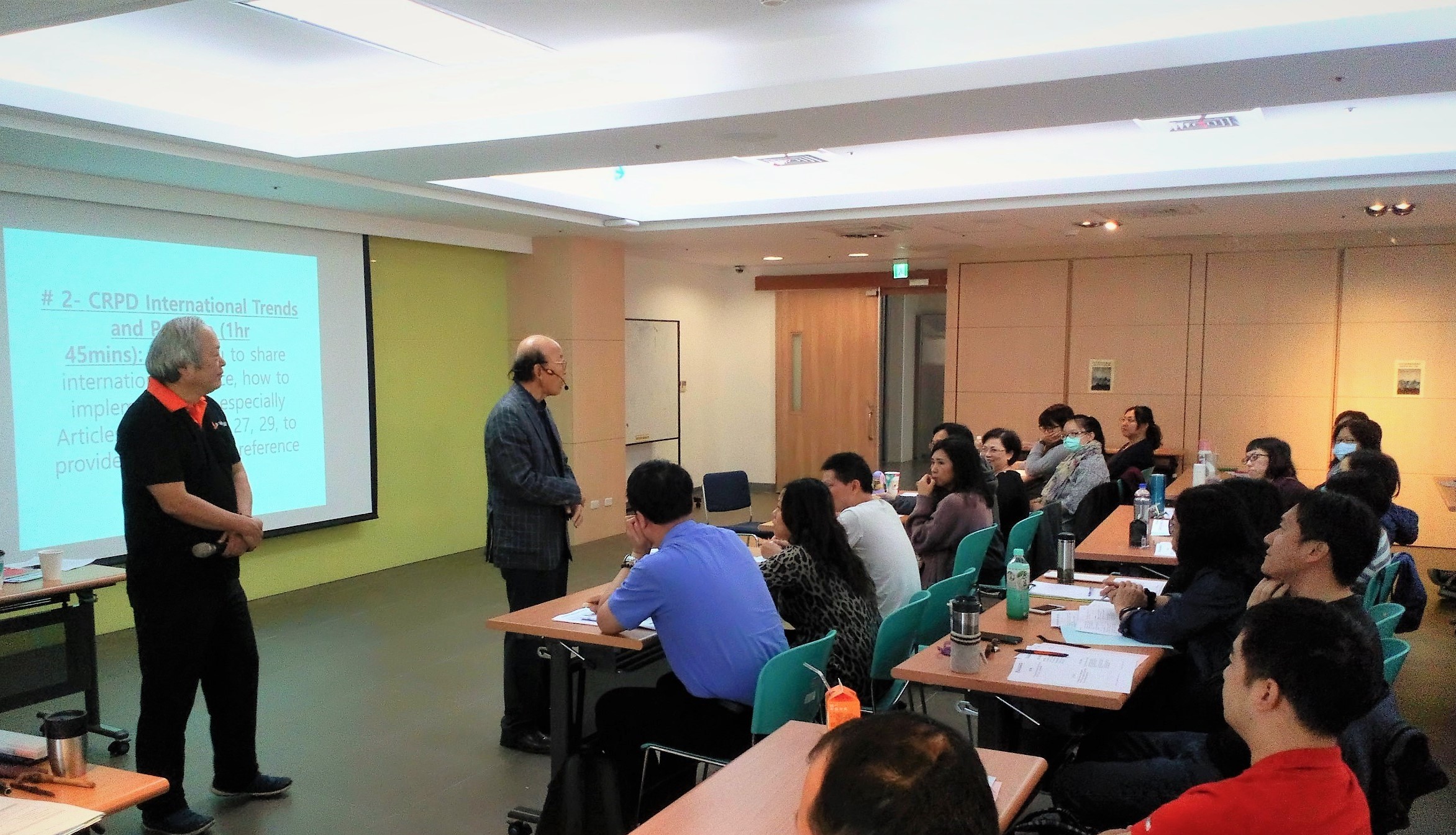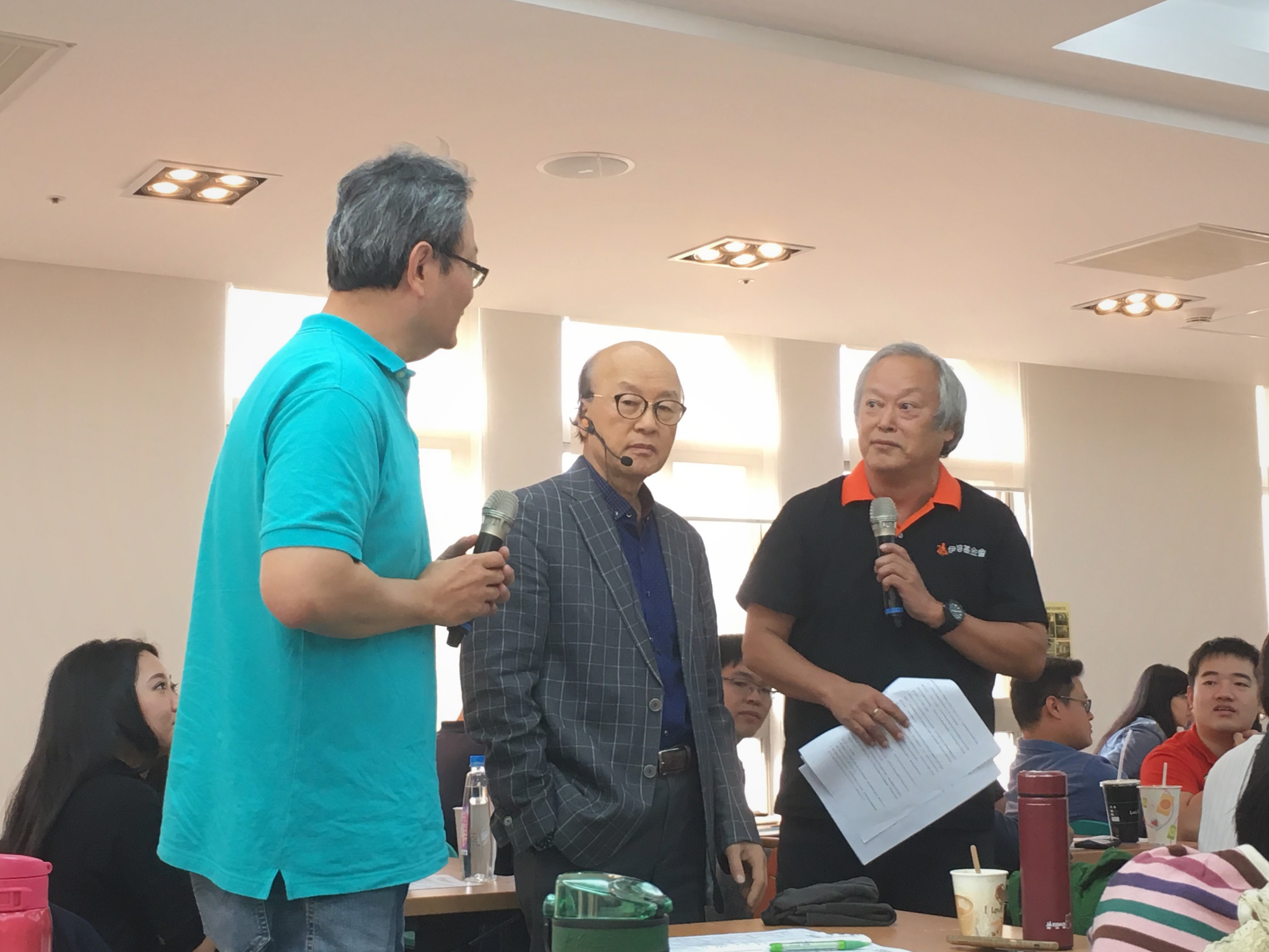
Proofreader | Natalya Posumentova
A CRPD Workshop held by Professor Hyung Shik Kim and Eden Social Welfare Foundation began on 21st November in Taipei Welfare Service Center for people with disabilities. Professor Kim, one of the 12 elected members of the UN CRPD committee, claimed the critical statement of human rights on persons with disabilities. Dating back to the act of rights of persons with disabilities, they had been regarded as “patients” for 100 years; however, Professor Kim stated that there is no difference between persons with disabilities and those without, and persons with disabilities are equally deserving of respect and dignity. CRPD is an international convention which protects the rights of persons with disabilities worldwide.

Prof. Hyung Shik Kim was invited to deliver CRPD workshops on 21st November.
Article 1
The purpose of the present Convention is to promote, protect and ensure the full and equal enjoyment of all human rights and fundamental freedoms by all persons with disabilities, and to promote respect for their inherent dignity.
According to CRPD, Prof. Kim thought that governments should take a responsibility for ensuring and promoting freedoms for all persons with disabilities without discrimination. Furthermore, governments must adopt appropriate laws, policies, programs, and promote awareness with advisable measures. Nowadays, there still exist many social problems that concern persons with disabilities. Prof. Kim took females with disabilities as an example: if a victim of sexual assault, females with disabilities cannot receive sufficient legislative protection, especially females with intellectual disabilities. Thus, Prof. Kim called for a public demonstration to provoke governments to undertake their obligations, in hopes to end difficulties faced by persons with disabilities in society.
Article 4
General Obligation
(a) To adopt all appropriate measures, including legislation, to modify or abolish existing laws, regulations, customs and practices that constitute discrimination against persons with disabilities.
Prof. Kim also recommended that people in Taiwan who work for an NGO as a social worker serve as a “social guardian.” This is because those in the best position to advocate for the rights of persons with disabilities in the society are those who understand the needs of service users. With sufficient data on the needs of persons with disabilities, NGOs can not only influence government’s decisions but also raise awareness throughout society.
Article 8
Awareness-raising
(a) To raise awareness throughout society, including at the family level, regarding persons with disabilities, and to foster respect for the rights and dignity of persons with disabilities.
When working with persons with disabilities, our support should not be welfare-based but rights-based. Eden is hoping we can gain a deeper understanding of the rights of persons with disabilities and utilize this knowledge in our social work.

Prof. Hyung Shik Kim was listening to the requests from Eden’s social workers.
The Convention on the Rights of Persons with Disabilities (CRPD) is an international human rights treaty adopted by the United Nations on 13th December 2006. It was the first Human Rights treaty to gain wide popularity among UN members and is ratified by 177 states, as well the European Union, a regional integration organization. CRPD aims to build an environment in which all persons with disabilities can enjoy full equality. “Disability” here refers to inconvenience that may arise after persons with disabilities interact with society. CRPD demands the state governments establish an accessible environment and promote the production and design of related technology for persons with disabilities.